Abortion: How do Trump and Biden's policies compare?
- Published
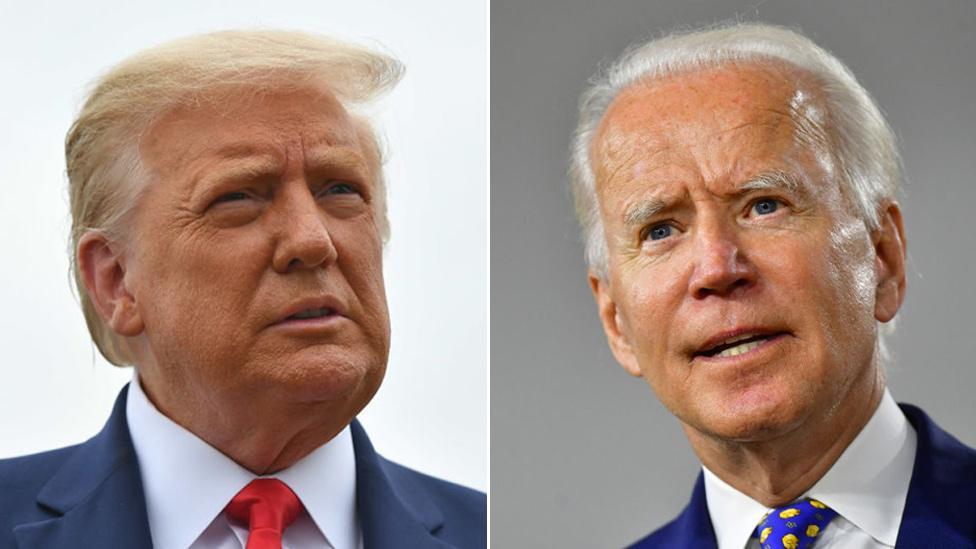
Abortion is arguably the most divisive issue in US politics and with a Supreme Court seat now vacant, the stakes have never been higher.
With President Trump in the White House, and following the death of liberal Justice Ruth Bader Ginsburg, anti-abortion activists are energised.
Republican-controlled states have tightened restrictions on abortion in recent years.
And there is a brewing political battle over whether Mr Trump should seek to fill the Supreme Court vacancy with a conservative judge prior to the 3 November election.
Activists are concerned it could put in peril the landmark 1973 ruling that legalised abortion nationwide.
Yet public support for abortion rights is the highest in decades, according to the Pew Research Center.
Let's compare where the presidential candidates stand on the issue.
Mr Trump's key message: We are making it harder to get an abortion now, want to overturn federal protections and would support a near-total ban. We will also seek to fill the Supreme Court seat left vacant by Justice Ginsberg's death before the election.
Mr Biden's key message: We will protect a woman's right to choose and fight to keep access to abortion legal. We will withdraw Mr Trump's Supreme Court nominee if we win the presidential election.
While it might sound like an issue you're either for or against, it's important to understand the details.
What do the candidates say on abortion being legal?
Roe v Wade is the landmark Supreme Court ruling from 1973 which safeguarded the right to an abortion on the national level.
It protects a woman's right to an abortion only until viability - the point at which a foetus is able to live outside the womb, generally by the start of the third trimester, 28 weeks into a pregnancy.
Mr Trump had promised in 2016 to pick judges who would "automatically" overturn Roe. While that hasn't happened yet, he has installed hundreds of federal judges plus two conservative justices on the top court - and if the president wins re-election he could reshape the judiciary even further.
He has said he will nominate a candidate prior to the election to fill the new vacancy at the Supreme Court.
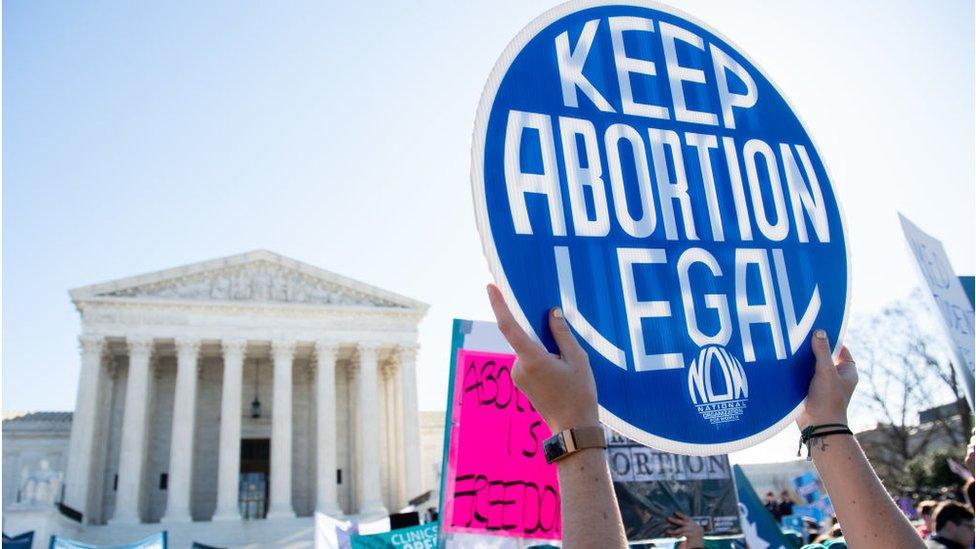
Conservative states, such as Alabama, have recently pushed near-total abortion bans in the hope a legal challenge against those restrictions will ultimately lead to Supreme Court toppling Roe v Wade.
Mr Trump has expressed support for banning abortion overall, except for cases of rape, incest or danger to the mother's life.
Mr Biden, in contrast, wants to pass a federal law that protects a woman's right to have an abortion - that's something that more liberal states like New York have moved towards.
Enshrining Roe this way would mean that even if the Supreme Court bucks the precedent going back almost 50 years, that right would still exist.
The Centers for Disease Control, external reported in 2016 that 91% of abortions occurred before 13 weeks of pregnancy, nearly 30% before eight weeks and only 1.2% after 21 weeks.
What about federal funding for abortions?
Mr Trump has certainly delivered on his promise to curtail federal funding for abortions.
The president last year barred federal family planning dollars from going to organisations that provide abortions or refer patients to abortion clinics. As a result, national reproductive healthcare provider Planned Parenthood lost millions in federal funds.
He's also reinstated and expanded the Mexico City Policy, which prevents any US government global health funds from going to foreign groups that also provide or inform about abortions.
Mr Biden has pledged to rescind that so-called "global gag rule" in his agenda for women.
The Democratic candidate has also expressed support for repealing the Hyde Amendment, which blocks taxpayer money from being used for abortions except in cases of rape, incest or danger to the mother. It has meant that lower-income women who receive government aid for healthcare have not been able to access abortion services.
Mr Biden earlier in the campaign said he favoured the measure, but after criticism from his colleagues on the left, he changed his mind.
Why does the abortion debate matter in the election?
It remains a key issue for Mr Trump's conservative base, and a deal-breaker for many in the evangelical or Catholic communities.
An August Pew Research Center poll, external found 46% of Mr Trump's supporters and 35% of Mr Biden's say abortion is a "very important" factor in how they'll vote this year.
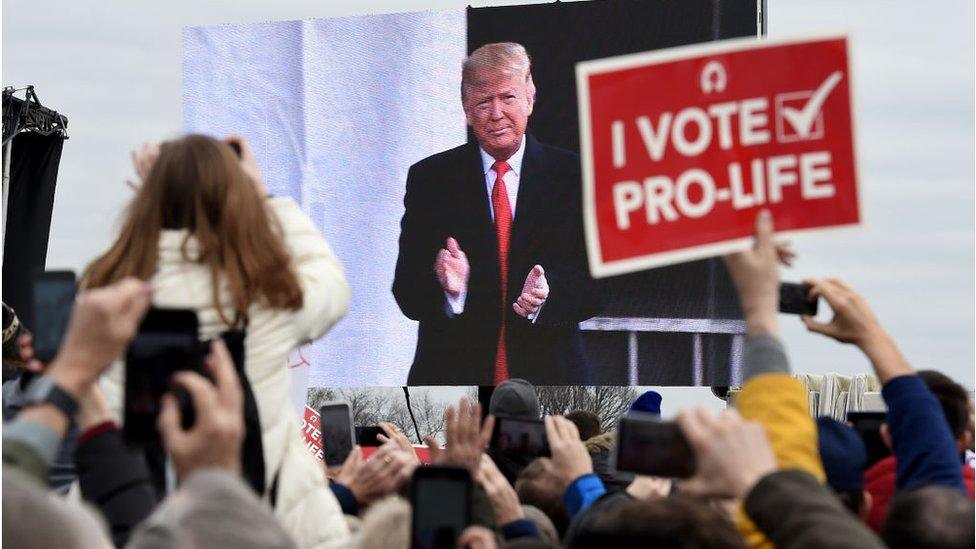
Anti-abortion activists see this election as a chance to build on the severe restrictions they put on abortion services in some states in 2019 and again during pandemic lockdowns. And if they're fired up that helps Republican turnout not just in the presidential race, but in significant state and congressional contests too.
Though Mr Trump won the overwhelming majority of the white evangelical vote in 2016, now that he's up against lifelong Catholic Mr Biden, some of that support could waver.
Polls suggest Mr Biden is viewed as more religious and has been doing slightly better among white religious voters, external than Hillary Clinton did in 2016. His views on healthcare, the pandemic and racial equality are also favourable for some religious voters for whom abortion isn't the top issue.
During a 2019 campaign stop in South Carolina, the Associated Press reported, external, Mr Biden spoke about how he squared his religious beliefs with his views on abortion, saying: "I'm prepared to accept for me, personally, doctrine of my church [on when life begins]...but I'm not prepared to impose that on every other person."

The US election is in November - and the BBC wants to answer your questions about everything from policies, like abortion rights, to the voting process. Some of what you've just read in this article came from questions other readers sent in.
Please submit your questions below.
In some cases, your question will be published, displaying your name, age and location as you provide it, unless you state otherwise. Your contact details will never be published. Please ensure you have read our terms & conditions and privacy policy.
- Published28 August 2019

- Published22 July 2019
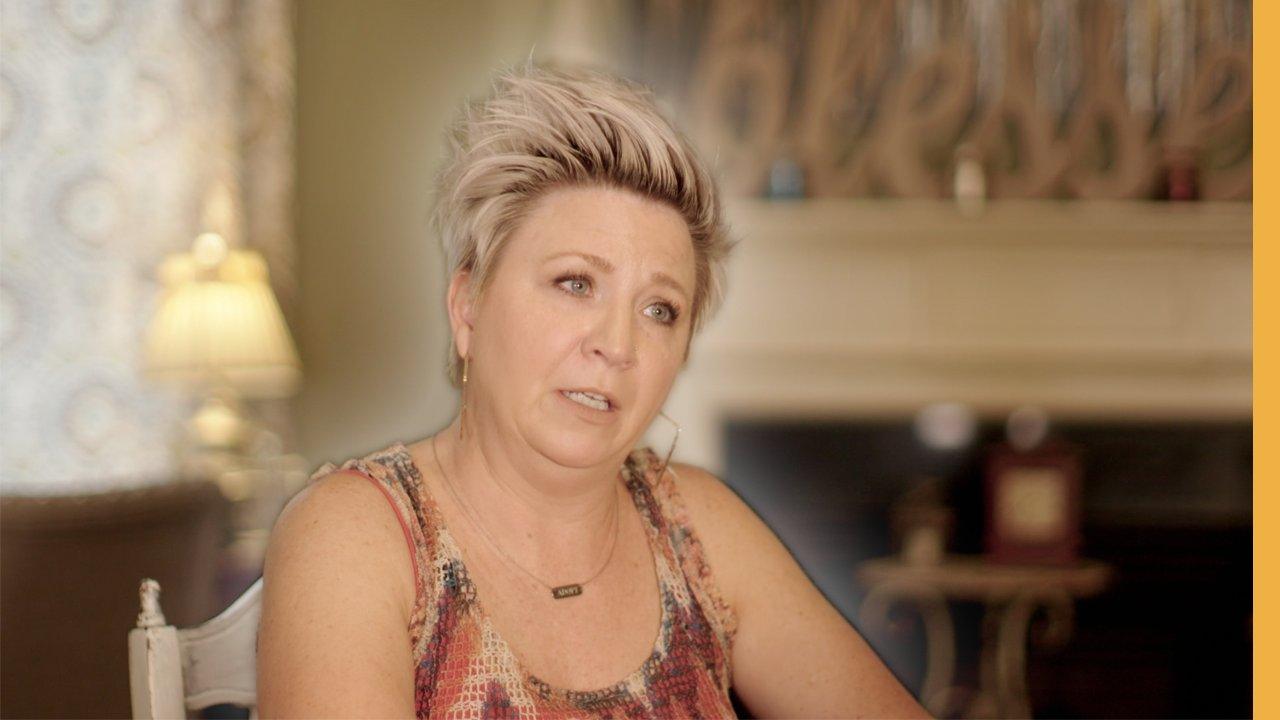
- Published24 January 2020
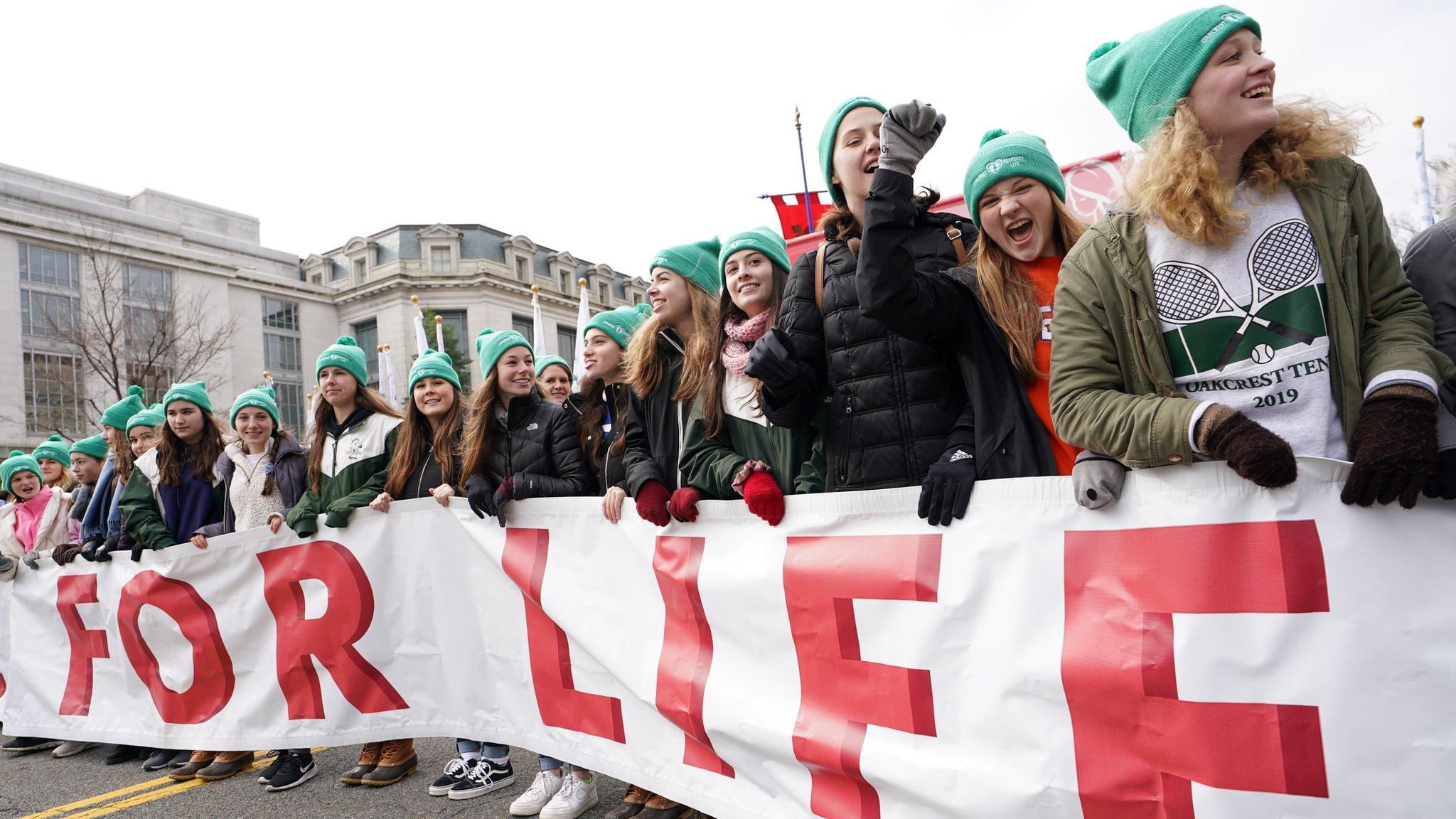
- Published14 June 2019
